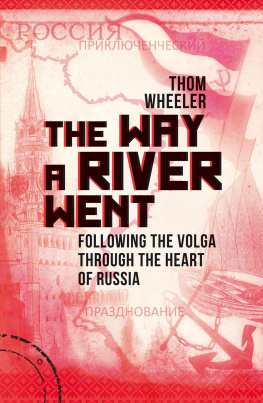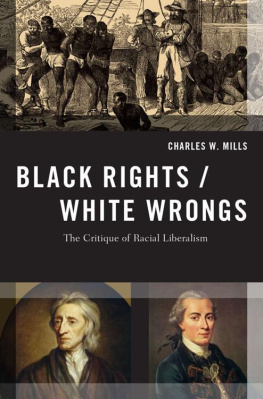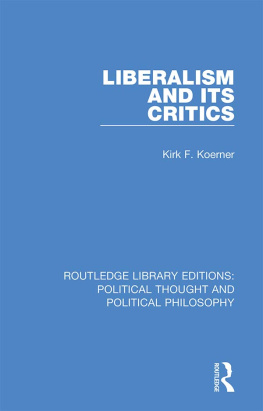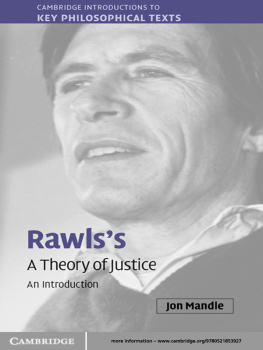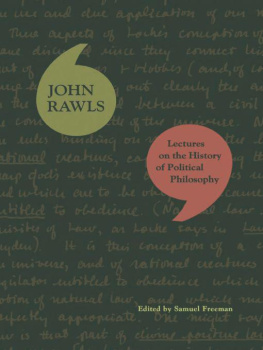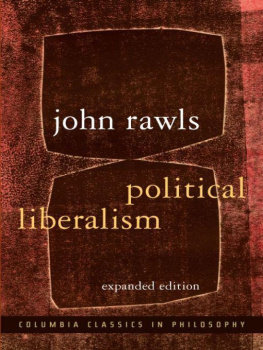RAWLSS POLITICAL LIBERALISM
COLUMBIA THEMES IN PHILOSOPHY
Columbia Themes in Philosophy
Series Editor: Akeel Bilgrami, Johnsonian Professor of Philosophy, Columbia University
Columbia Themes in Philosophy is a new series with a broad and accommodating thematic reach as well as an ecumenical approach to the outdated disjunction between analytical and European philosophy. It is committed to an examination of key themes in new and startling ways and to the exploration of new topics in philosophy.
Edward Said, Humanism and Democratic Criticism
Michael Dummett, Truth and the Past
John Searle, Freedom and Neurobiology: Reflections on Free Will, Language, and Political Power
Daniel Herwitz and Michael Kelly, eds., Action, Art, History: Engagements with Arthur C. Danto
Michael Dummett, The Nature and Future of Philosophy
Jean Bricmont and Julie Franck, eds., Chomsky Notebook
Mario De Caro and David Macarthur, eds., Naturalism and Normativity
Alan Montefiore, A Philosophical Retrospective: Facts, Values, and Jewish Identity
RAWLSS POLITICAL LIBERALISM
Edited by Thom Brooks and Martha C. Nussbaum
COLUMBIA UNIVERSITY PRESS
NEW YORK
Columbia University Press
Publishers Since 1893
New York Chichester, West Sussex
cup.columbia.edu
Copyright 2015 Columbia University Press
All rights reserved
E-ISBN 978-0-231-52772-9
Library of Congress Cataloging-in-Publication Data
Rawlss political liberalism / edited by Thom Brooks and Martha C. Nussbaum.
pages c.m. (Columbia themes in philosophy)
Includes bibliographical references and index.
ISBN 978-0-231-14970-9 (cloth : alk. paper) ISBN 978-0-231-14971-6 (pbk : alk. paper) ISBN 978-0-231-52772-9 (e-book)
1. LiberalismPhilosophy 2. Rawls, John, 19212002. I. Brooks, Thom, editor of compilation. II. Nussbaum, Martha Craven, 1947 editor of compilation.
JC574.R39 2015
320.51dc23
2014034108
A Columbia University Press E-book.
CUP would be pleased to hear about your reading experience with this e-book at .
Cover design: Noah Arlow
References to websites (URLs) were accurate at the time of writing. Neither the author nor Columbia University Press is responsible for URLs that may have expired or changed since the manuscript was prepared.
CONTENTS
Thom Brooks and Martha C. Nussbaum
Martha C. Nussbaum
Onora ONeill
Paul Weithman
Jeremy Waldron
Thom Brooks
Frank I. Michelman
Thom Brooks and Martha C. Nussbaum
John Rawlss Political Liberalism is one of the most important works of political philosophy published in the twentieth century. It offers a revision of Rawlss theory of justice while defending powerful new arguments for a way of framing political principles designed to solve the problem of political stability in light of the fact of reasonable pluralism. A critical reassessment is timely, given the twentieth anniversary of Political Liberalisms original publication in 1993. This collection of essays sheds new light on this work and its legacy, engaging with several central issues in Rawlss work from different perspectives. Together, they confirm the continuing importance of Political Liberalism in contemporary debates and the need for deep engagement.
We begin with a wide-ranging introduction to Political Liberalism by Martha C. Nussbaum. She identifies its key motivating ideas and powerful relevance for pressing contemporary issues, such as religious liberty and equal respect for diverse views. Nussbaum clarifies the often misunderstood relationship between Political Liberalism and Rawlss earlier A Theory of Justice. The problem of stability is not a focus of A Theory of Justice. Nor is Rawlss discussion in Political Liberalism incompatible with A Theory of Justice, although the latter is revised in some important respects. Nussbaums introduction also draws attention to the rich connections between Rawlss work and its historical antecedents, such as the contributions of Hobbes, Locke, Rousseau, and Kant.
Our book then proceeds to consider important topics and rich debates in the chapters that follow. Onora ONeill examines Rawlsian constructivism and questions concerning citizenship and who counts? that reflect the idea of society as bounded and that became more central to Rawlss approaches to justifying principles of justice. Paul Weithman discusses political liberalism in terms of legitimacy and Rawlss political turn, which highlights serious failings in standard readings and the distinctive connection Rawls makes between legitimacy and the good. Jeremy Waldron scrutinizes the relation between public reasons and the reasons individuals bring to their own evaluation of laws and institutions to assess critically the use of public reasons in public debates within a modern pluralistic society.
Thom Brooks considers the idea of an overlapping consensus and the criticisms that find it either unnecessary or too fragile to secure political stability over time. He rejects these criticisms and argues for incorporating the capabilities approach in a revision of political liberalism that might better secure political stability. Frank I. Michelman examines the relation between theory and practice through the political case for the priority of liberty and how Rawls, J. might address related constitutional issues from this perspective. This has important implications for how we understand Rawlss justification for the priority of liberty.
Together, these essays break new ground in our understanding of capabilities, constitutionalism, constructivism, political legitimacy, public reasoning, and political liberalism more generally, testifying to the lasting importance of Rawlss Political Liberalism in contemporary debates about political justice.
| CP | John Rawls, Collected Papers, ed. Samuel Freeman (Cambridge, Mass.: Harvard University Press, 1999). |
| JF | John Rawls, Justice as Fairness: A Restatement, ed. Erin Kelly (Cambridge, Mass.: Harvard University Press, 2001). |
| LP | John Rawls, The Law of Peoples (Cambridge, Mass.: Harvard University Press, 1999). |
| PL | John Rawls, Political Liberalism, pbk. ed. (New York: Columbia University Press, 1996). Originally published in 1993. |
| IPRR | John Rawls, The Idea of Public Reason Revisited. Appears in LP 129180 and CP 573616. |
| TJ | John Rawls, A Theory of Justice, rev. ed. (Cambridge, Mass.: Harvard University Press, 1999). Originally published in 1971. |
Martha C. Nussbaum
It is extremely hard to introduce a book that is by now a classic and that is rightly regarded as one of the most important works of political philosophy of the twentieth century. An introduction ought to acquaint readers with the main ideas of the work, but Rawls does this with such clarity in his own introduction to the 1996 paperback edition, and in the text itself, that this part of the writers task can be executed relatively briefly. Since, moreover, the book is by now the subject of a wide and deep philosophical literature, much of it excellent in quality, it would be foolhardy to attempt to say something about each of the major issues of the work or to sort through debates that can easily be located elsewhere. I have therefore decided to focus on a small number of issues where there is at least some chance that a fresh approach may yield some new understanding of the text: the relationship of





